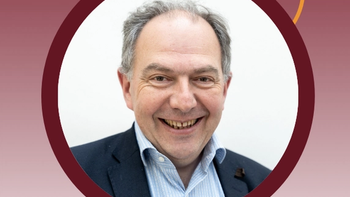
Senior Italians Confer in EU on EMA Relocation
What cannot have escaped the attention of any impartial observer is that Milan is one of the leading contenders to host the EMA and that Tajani and Rasi are both Italian. The EMA relocation is a hot topic without any bias towards Milan.
What on earth was the Executive Director of the European Medicines Agency, Professor Guido Rasi, doing meeting with the European Parliament President, Antonio Tajani, at the end of August? And by the same token, what was Tajani doing meeting with Rasi?
According to a press release from Tajani's office, "Their meeting focused on the EMA’s role in health protection and innovation"-oh, and "its relocation due to Brexit." The release goes on: "At the end of the meeting, the President of the European Parliament declared: 'Choosing the new headquarters of the EMA must be based on objective criteria drawn up at the European level whose aim must be to make its running as economical and efficient as possible, in the interests of our citizens.'"
Well yes, he would say that, wouldn't he? Because that is what the European Council-which is going to guide the decision to be made in November by European affairs ministers-has already decided, so he couldn't say much else.
What cannot have escaped the attention of any impartial observer is that Milan is one of the leading contenders to host the EMA-an issue of considerable importance for national prestige-and that Tajani and Rasi are both Italian. Neither, amid the furious lobbying taking place in Brussels in advance of that November decision, can it have escaped attention that the European Parliament has no role of any formal nature in the decision over the new location of the EMA.
So why, one wonders, did Tajani find it appropriate to meet Rasi right now-particularly since scheduled meetings between the boss of EMA and the boss of the European Parliament are rare indeed, and my imperfect memory can recall no such encounter in the 20 years since the EMA came into being.
To eliminate any lingering suspicion in the minds of even the most skeptical observers, your columnist raised the question with Carlo Corazza, Tajani's spokesman. When asked if this meeting was an attempt to win favor for Milan, he flatly denied it. And he said that even if the Parliament was not involved in the decision over the relocation of the EMA, it did have a role in approving the agency's annual accounts, so it had a legitimate interest in a "rational decision". This meant securing a location that met objective criteria like the cost of flights or the availability of schools for the children of EMA staff.
Mr Tajani and Prof. Rasi are both of the opinion that there are a number of candidate cities that fulfil EMA’s requirements for a smooth transition among the bids submitted. But, said Corazza, Tajani did not disclose which cities they were. He merely said, "The European Parliament will ensure that the new headquarters will be chosen with regard for these objective criteria, in full transparency, in the interests of safeguarding the health of our citizens while promoting innovation." Which is odd, considering the Parliament has no formal role in the choice. EMA however, said they "categorically" deny any suggestion that the meeting "can be construed as being in favour of one particular location."
Diligently, the same questions of why a meeting and why now have been addressed to the EMA, but so far, no answer. It is, after all, August.
Meanwhile, the lobbying continues to intensify, in Brussels and beyond. Bizarrely, after 20 years of decent obscurity in the service of European health, the EMA has suddenly become an international celebrity just as Brexit threatens to diminish its role, its efficacy, and its prestige.
Newsletter
Stay current in clinical research with Applied Clinical Trials, providing expert insights, regulatory updates, and practical strategies for successful clinical trial design and execution.




